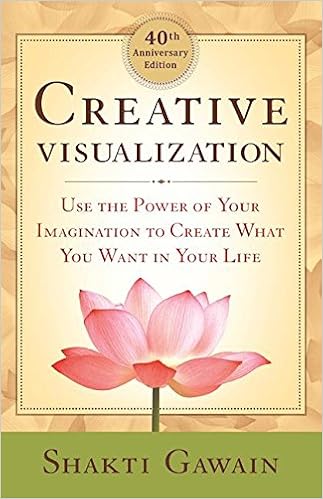Creative people, especially those who are highly sensitive, allow themselves to be more open in many ways
This can at times increase discomfort or pain, but also enhance creative thinking and imagination.
 In her Harvard Commencement Address, author J.K. Rowling spoke about the “uniquely human capacity to envision that which is not” as “the fount of all invention and innovation.”
In her Harvard Commencement Address, author J.K. Rowling spoke about the “uniquely human capacity to envision that which is not” as “the fount of all invention and innovation.”
She also noted the power of our imagination for understanding other people’s challenges.
She worked for a time for Amnesty International, and says she used some of that experience in creating her ‘Harry Potter’ books.
But she also commented that many people “prefer not to exercise their imaginations at all.
“They choose to remain comfortably within the bounds of their own experience, never troubling to wonder how it would feel to have been born other than they are…they can close their minds and hearts to any suffering that does not touch them personally; they can refuse to know.”
Read more and see video, plus link to the transcript, in my post: J.K. Rowling on creative imagination.
~~~
Psychologist Scott Barry Kaufman talks about the power of this aspect of creative thinking in his video on “Creativity and Imagination.”
The description summarizes that he is “scientific director of the Imagination Institute in the Positive Psychology Center at the University of Pennsylvania” and “conducts research on the measurement and development of imagination, creativity, and play…”
Kaufman is author or co-author/editor of multiple books including:
The Philosophy of Creativity: New Essays (with Elliot Samuel Paul).
Wired to Create: Unraveling the Mysteries of the Creative Mind (with Carolyn Gregoire).
Ungifted: Intelligence Redefined
In the latter book, he writes about feeling like an outsider related to imagination:
“Most people are driven both by the need to belong and the need for uniqueness and try to strike a balance between them. For some people, the needs scale is tilted much heavier in one direction or the other.
“Recent research suggests this matters for creativity.
“In a recent series of studies, Sharon Kim and colleagues found that people who hold an independent self-concept showed increased imagination about otherworldly creatures and broader remote associations after explicitly being told that they were not selected to be in a group, compared to being told they would join the group after completing some tasks.
“The researchers found that this boost in creativity was specifically due to the mindset of feeling different from others.”
Imagination is not always ‘positive’
Imagination is a thinking tool that we can also use to limit our creativity or distort our experience of life.




“The simplest way to describe the difference between creativity and threat response is to consider how each uses our imagination.
“The imagination is a powerful aspect of our brain functioning.
“How well it functions and how well it is able to support our well-being is important.
“If our imagination has been directed toward fear, that is a pathway in our brain that will automatically arise when we are contemplating a task – especially a new one.
“When our imagination has habitually been directed to imagining something positive, that is where it will naturally go.”
Imagination and personal development
In a course on sport psychology I once took, one of the topics of research I found especially intriguing was performance visualization.
One example: a site related to a Creative Visualization class notes that Psychology Today “reported a 1994 study by the Cleveland Clinic Foundation in Ohio, who compared people who went to the gym with people who imagined their workouts virtually.
“The study found a 30% muscle increase in the group who actually went to the gym, and a 13.5% muscle increase for the group that only exercised in their heads.”
Other studies also show that just imagining a physical activity can lead to improvements in performance and measurable changes in physiology.




When he appeared on The Oprah Winfrey Show in 1997, Jim Carrey spoke about how his visualization techniques aided his success in Hollywood.
Oprah said of the interview later: “I was not a person who did visualization or thought about my belief system in such a practical way but I learned a lot from Jim Carrey from that show and he is absolutely correct.”
Those quotes are from a site related to a free Creative Visualization online class with Lisa Nichols and Vishen Lakhiani of Mindvalley.
Image is from book:
Creative Visualization: Use the Power of Your Imagination to Create What You Want in Your Life by Shakti Gawain.
~~~~
Another example: actor Dennis Haysbert has portrayed a variety of dynamic characters in film (such as “Jarhead”) and television (including “24” and “The Unit”).
He says, “I visualize the roles that I want. If I hadn’t visualized playing athletes, I wouldn’t have gotten ‘Major League.’ If I hadn’t visualized playing a president, David Palmer never would have happened.
“You’ve got to have a sense of what you want to do; otherwise, the universe is just going to throw something at you.”
From my post Using Visualization For Creative Achievement.
This video is a good way to end –
Actualizing The Human Imagination by Shots of Awe / Jason Silva (host of Brain Games).
And a final quote:
“Imagination is the beginning of creation. You imagine what you desire, you will what you imagine and at last you create what you will.” – George Bernard Shaw
~~~~~~~
Visited 1 times, 1 visit(s) today
